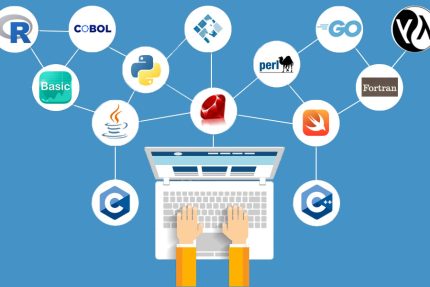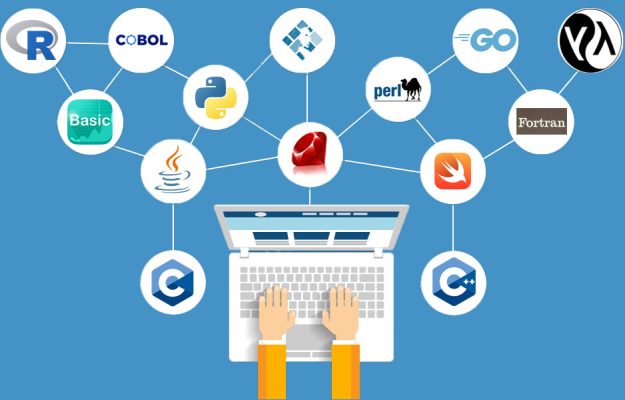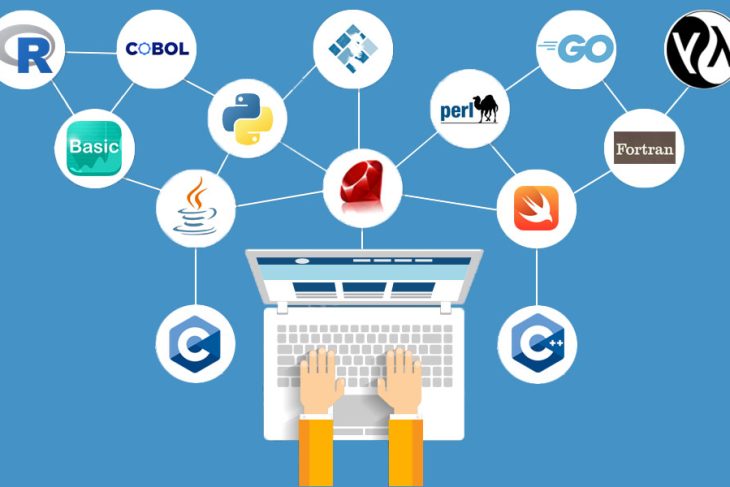

by admin
The Impact of Self-Driving Cars on Urban Planning: Exploring the Future
Self-driving cars have been a hot topic in recent years, promising to revolutionize transportation as we know it. As this technology continues to evolve, it’s important to consider the potential impact it will have on urban planning. In this article, we delve into how self-driving […]
Smart Cities
by admin
Exploring the Diverse Metaverse Experiences Enabled by the Extended Reality Spectrum
The concept of the metaverse has captured the imagination of people worldwide, promising immersive virtual experiences that transcend traditional boundaries. Within the metaverse, extended reality (XR) technologies play a pivotal role in delivering a wide range of experiences, from virtual reality (VR) and augmented reality […]
Industrial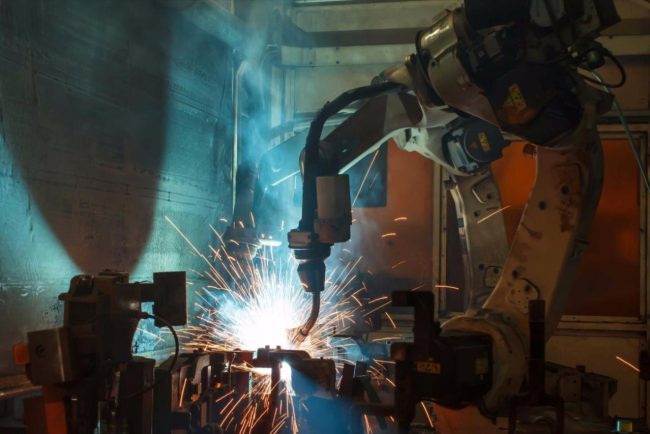
by admin
The Transformative Influence of Artificial Intelligence on Product Manufacturing
Artificial Intelligence (AI) has emerged as a disruptive force across various industries, and its impact on product manufacturing is both significant and transformative. By leveraging AI technologies, manufacturers are experiencing improved operational efficiency, enhanced product quality, and increased innovation. Let’s delve into the profound influence […]
Industrial
by admin
Achieving Work-Life Balance in a Startup: 5 Strategies for Success
Working at a startup can be an exhilarating experience, but it often comes with long hours, high pressure, and a fast-paced environment. Finding a balance between work and personal life becomes crucial to avoid burnout and maintain overall well-being. In this article, we will explore […]
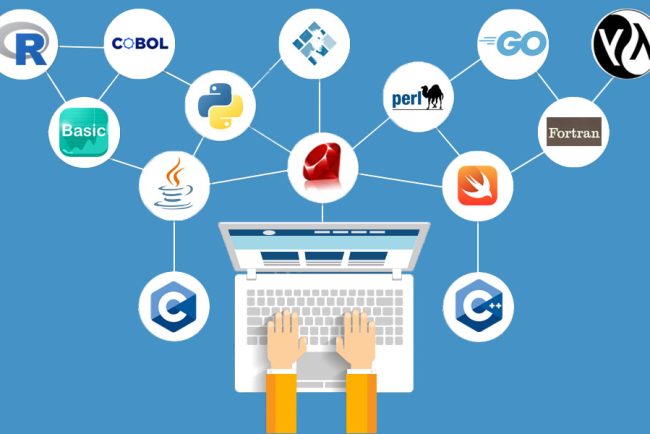
by admin
Exploring the Applications of Natural Language Processing (NLP) in Various Fields
As an Internet information blogger, I am fascinated by the potential of Natural Language Processing (NLP) and its impact on our daily lives. NLP is a technology that allows machines to understand and process human language, combining elements of linguistics, computer science, and artificial intelligence. […]
Industrial
by admin
The Transformation of Travel: Exploring the Impact of Connected Technology
In today’s digital age, connected technology is revolutionizing the way we travel. From planning our trips to navigating unfamiliar destinations, technology has become an integral part of our travel experiences. Let’s delve into how connected tech is changing the landscape of travel and enhancing our […]
Lifestyle
by admin
Exploring the Applications of Natural Language Processing (NLP) in Various Fields
As an Internet information blogger, I am fascinated by the potential of Natural Language Processing (NLP) and its impact on our daily lives. NLP is a technology that allows machines to understand and process human language, combining elements of linguistics, computer science, and artificial intelligence. […]
Industrial
by admin
The Transformation of Travel: Exploring the Impact of Connected Technology
In today’s digital age, connected technology is revolutionizing the way we travel. From planning our trips to navigating unfamiliar destinations, technology has become an integral part of our travel experiences. Let’s delve into how connected tech is changing the landscape of travel and enhancing our […]
Lifestyle
by admin
Building a Future-Ready Warehouse: Nurturing Connectivity and Automation
The concept of the warehouse of tomorrow represents a visionary approach to warehousing and distribution. It envisions warehouses designed with connectivity and automation at their core, promising enhanced efficiency and productivity in storage and fulfillment processes. To achieve this, companies need to focus on modernization […]
Industrial
by admin
Achieving Work-Life Balance in a Startup: 5 Strategies for Success
Working at a startup can be an exhilarating experience, but it often comes with long hours, high pressure, and a fast-paced environment. Finding a balance between work and personal life becomes crucial to avoid burnout and maintain overall well-being. In this article, we will explore […]
Startups
Unveiling the Influence of Travel on Business Success
by admin
Traveling has always played a significant role in the world of business. Whether it’s attending conferences, meeting clients, or exploring new markets, travel has a profound impact on business growth and success. In this article, we delve into the far-reaching effects of traveling on business […]
Lifestyle
Traveling has always played a significant role in the world of business. Whether it’s attending conferences, meeting clients, or exploring new markets, travel has a profound impact on business growth and success. In this article, we delve into the far-reaching effects of traveling on business and how it contributes to professional achievements.
Building Relationships and Networking:
One of the key benefits of business travel is the opportunity to build relationships and expand professional networks. Meeting face-to-face with clients, partners, and industry peers fosters trust, strengthens connections, and opens doors to new opportunities. The personal touch and direct interaction offered by travel can often lead to fruitful collaborations and long-term business partnerships.
Cultural Understanding and Global Perspective:
Traveling exposes individuals to diverse cultures, customs, and business practices. By immersing themselves in different environments, professionals gain a broader perspective and a deeper understanding of global markets. This cultural intelligence enables businesses to adapt their strategies, tailor their products or services, and effectively navigate international markets.
Market Expansion and Business Development:
Exploring new markets is a fundamental aspect of business growth. Traveling allows entrepreneurs and executives to conduct market research, identify potential customers, and establish a presence in foreign territories. By understanding local market dynamics and consumer preferences firsthand, businesses can tailor their offerings to suit specific regions, gaining a competitive edge and expanding their customer base.
Inspiration and Creativity:
Traveling can serve as a catalyst for inspiration and creativity in business. Experiencing new environments, encountering different perspectives, and immersing oneself in unfamiliar surroundings can spark fresh ideas and innovative thinking. The exposure to diverse cultures, landscapes, and experiences can fuel creativity and lead to the development of unique business strategies and solutions.
Personal and Professional Development:
Traveling for business offers individuals valuable opportunities for personal and professional growth. It enhances communication skills, adaptability, problem-solving abilities, and cultural sensitivity. Navigating unfamiliar territories and dealing with diverse challenges strengthens resilience and broadens skill sets, contributing to overall professional development.
Maximizing the Impact of Business Travel:
To maximize the impact of business travel, careful planning and execution are essential. Leveraging technology and travel resources can streamline logistics, optimize scheduling, and ensure productive trips. Additionally, staying connected with colleagues and clients through digital platforms while traveling helps maintain momentum and collaboration.
Conclusion:
The impact of traveling on business cannot be understated. From building relationships and expanding networks to gaining global perspectives and fostering creativity, travel plays a pivotal role in the success and growth of businesses. By embracing the opportunities offered by business travel and leveraging the experiences gained, professionals can unlock new avenues for innovation, collaboration, and market expansion.

by admin
Ensuring the Long-Term Success of Your Startup: Understanding the Significance of Estate Planning for Tech Entrepreneurs
As a tech entrepreneur, your focus may primarily be on building and scaling your startup. However, it is equally crucial to consider the long-term sustainability and protection of your business beyond your own involvement. Estate planning, often overlooked by many entrepreneurs, plays a vital role […]
Startups
As a tech entrepreneur, your focus may primarily be on building and scaling your startup. However, it is equally crucial to consider the long-term sustainability and protection of your business beyond your own involvement. Estate planning, often overlooked by many entrepreneurs, plays a vital role in securing your startup’s future. In this article, we will explore the importance of estate planning for tech entrepreneurs and why it should be a priority.
Planning for the Unexpected: Estate planning involves making arrangements for the management and transfer of assets in the event of incapacitation or death. While contemplating such matters may seem daunting, it is essential to have a plan in place to ensure the smooth continuation of your startup, protect your family’s interests, and minimize potential conflicts.
Preserving Your Business Legacy: Your startup is not just a business; it represents your vision, hard work, and innovation. Estate planning allows you to safeguard your legacy and ensure the successful transition of your business to future generations or chosen successors. By establishing a clear plan, you can designate individuals who will assume key roles and responsibilities, thereby preserving your startup’s mission and values.
Succession Planning: Tech entrepreneurs often underestimate the importance of succession planning. Identifying and grooming successors within your organization ensures continuity and minimizes disruptions in case of unforeseen circumstances. Proper succession planning involves identifying and developing key talent, outlining leadership transition strategies, and providing necessary training and mentorship to potential successors.
Protecting Intellectual Property: Intellectual property (IP) is a valuable asset for tech startups. Estate planning allows you to protect and manage your IP rights effectively. By specifying how your IP should be handled, you can ensure its continued growth and prevent unauthorized use or infringement. Including provisions for the management and licensing of your IP assets in your estate plan provides a legal framework for their protection.
Minimizing Tax Implications: Estate planning can also help minimize tax implications for your startup and your heirs. By leveraging various estate planning tools and strategies, such as trusts or gifting, you can reduce the potential burden of estate taxes and ensure the seamless transfer of your business and assets to your chosen beneficiaries.
Addressing Contingencies and Risks: Effective estate planning allows you to address contingencies and potential risks that may impact your startup. For example, you can include provisions for the appointment of trustees or advisors to oversee the business in case of your incapacity or untimely demise. This ensures that your startup continues to operate smoothly and that important decisions are made in your absence.
Regular Review and Updating: Estate planning is not a one-time event but an ongoing process. As your startup evolves and your personal circumstances change, it is essential to review and update your estate plan regularly. This ensures that it remains aligned with your current goals, legal requirements, and any changes in your business structure or family dynamics.
Conclusion: Estate planning is a critical aspect of securing the long-term success of your startup. By addressing issues related to succession, intellectual property, taxes, contingencies, and risk management, you can protect your business, preserve your legacy, and provide for your loved ones. Make estate planning a priority and consult with legal and financial professionals to create a comprehensive plan that safeguards your startup’s future.

by admin
The Key to Empowering the Connected World
As technology continues to advance at an unprecedented pace, the world is becoming increasingly connected. From smart homes and wearable devices to industrial automation and self-driving cars, the Internet of Things (IoT) has transformed the way we live and work. However, with this interconnectedness comes […]
Smart Cities
As technology continues to advance at an unprecedented pace, the world is becoming increasingly connected. From smart homes and wearable devices to industrial automation and self-driving cars, the Internet of Things (IoT) has transformed the way we live and work. However, with this interconnectedness comes the need for more flexibility and control over software and systems. That’s where feature flags come into play – the great enabler of the connected world.
So, what are feature flags? In simple terms, feature flags are toggles that allow developers to turn on or off specific features within their software applications, even after they have been deployed. These flags act as a control mechanism, enabling teams to manage the release of new features, experiment with different functionalities, and mitigate risks associated with complex deployments. By using feature flags, developers can safely introduce changes to their software without disrupting the user experience or compromising system stability.
Feature flags have gained significant popularity in recent years due to their ability to support continuous delivery and agile development practices. With feature flags, software development teams can decouple the process of feature development from its release, allowing for more frequent and smaller releases. This approach reduces the time-to-market for new features and enables faster iterations based on user feedback and data-driven insights.
The benefits of feature flags extend beyond software development teams. For end-users, feature flags provide a seamless experience by ensuring that new features or changes are rolled out gradually, reducing the likelihood of encountering bugs or performance issues. Moreover, feature flags enable personalized experiences, as different groups of users can be targeted with specific features based on their preferences or demographics.
In the realm of IoT, feature flags play a crucial role in managing the complexities of interconnected devices and services. They allow for the remote activation or deactivation of features, enabling seamless updates and bug fixes without requiring physical access to every device. This level of control and flexibility is essential for IoT ecosystems, where a vast number of devices with different capabilities and software versions need to coexist harmoniously.
As an internet knowledge blogger, it is essential to emphasize the potential risks and challenges associated with feature flags. Poorly implemented or mismanaged feature flags can lead to confusion, compatibility issues, or even security vulnerabilities. Therefore, it is crucial for organizations to establish robust practices and frameworks for feature flag management, including proper documentation, version control, and monitoring.
In conclusion, feature flags are indeed the great enabler of the connected world. They provide developers and organizations with the ability to release software features with confidence, iterate quickly based on user feedback, and manage the complexities of interconnected systems. With feature flags, the connected world can embrace continuous innovation, improved user experiences, and personalized interactions. However, it is vital for organizations to approach feature flag management with care and diligence to ensure the seamless and secure integration of these powerful toggles into their software and IoT ecosystems.

by admin
Safeguarding Connected Machines: Ensuring Security in Industrial IoT
As the Industrial Internet of Things (IIoT) continues to transform the manufacturing landscape, the security of connected machines has become a paramount concern. The interconnectivity of industrial systems introduces new vulnerabilities that can be exploited by malicious actors, leading to potentially devastating consequences. Therefore, it […]
Industrial
As the Industrial Internet of Things (IIoT) continues to transform the manufacturing landscape, the security of connected machines has become a paramount concern. The interconnectivity of industrial systems introduces new vulnerabilities that can be exploited by malicious actors, leading to potentially devastating consequences. Therefore, it is crucial for businesses to prioritize the security of their IIoT infrastructure. In this article, we will explore the importance of industrial IoT security and discuss key measures to protect connected machines from cyber threats.
- Robust Network Infrastructure: A secure network infrastructure forms the foundation for industrial IoT security. Implementing strong authentication mechanisms, such as secure passwords and multi-factor authentication, helps prevent unauthorized access to connected machines and systems. Additionally, segmenting the network into zones and implementing firewalls can isolate critical systems from less secure areas, reducing the attack surface and limiting the potential impact of a breach. Regular monitoring and updating of network devices, including routers and switches, is also essential to address any known vulnerabilities.
- Encryption and Data Protection: Protecting data in transit and at rest is vital to maintain the confidentiality and integrity of IIoT systems. Employing encryption protocols, such as Transport Layer Security (TLS) or IPsec, ensures that data exchanged between connected machines and backend systems remains secure. Encrypting sensitive data stored within the IIoT infrastructure, including configuration files and user credentials, adds an extra layer of protection against unauthorized access. Regular backups of critical data should also be performed to mitigate the impact of potential data breaches or system failures.
- Continuous Monitoring and Threat Detection: Real-time monitoring and threat detection are crucial for early detection and response to potential cyber threats. Implementing intrusion detection and prevention systems (IDS/IPS) can help identify and block suspicious activities or unauthorized access attempts. Security information and event management (SIEM) solutions can provide centralized log management, analysis, and alerting capabilities, allowing security teams to proactively monitor and investigate security incidents. Additionally, deploying anomaly detection algorithms and machine learning techniques can help detect patterns indicative of malicious behavior or abnormal system activities.
- Regular Patching and Vulnerability Management: Keeping IIoT systems up to date with the latest security patches and firmware updates is vital to address known vulnerabilities. Regularly applying patches provided by equipment manufacturers and software vendors helps safeguard connected machines against known exploits. Establishing a robust vulnerability management process, including regular vulnerability assessments and penetration testing, allows businesses to identify and address potential weaknesses in their IIoT infrastructure proactively. It is also essential to have a clear incident response plan in place to quickly mitigate the impact of any security incidents that may occur.
Conclusion: As industrial systems become increasingly connected through the IIoT, ensuring the security of connected machines is of utmost importance. Implementing a comprehensive security strategy that encompasses robust network infrastructure, encryption, continuous monitoring, and vulnerability management is crucial to protect against cyber threats. By prioritizing industrial IoT security, businesses can mitigate the risks associated with interconnected systems, safeguard sensitive data, and maintain the integrity and availability of critical operations. As the IIoT continues to evolve, a proactive and vigilant approach to security will be paramount in enabling the full potential of connected machines while minimizing the associated risks.

by admin
Latin America’s Rise as a Magnet for Global Tech Giants
Latin America has emerged as an increasingly attractive destination for global tech giants seeking new opportunities and markets. With its growing economy, young population, and thriving tech ecosystem, the region offers a fertile ground for innovation and expansion. In this article, we will explore how […]
Smart Cities
Latin America has emerged as an increasingly attractive destination for global tech giants seeking new opportunities and markets. With its growing economy, young population, and thriving tech ecosystem, the region offers a fertile ground for innovation and expansion. In this article, we will explore how Latin America is drawing in global tech giants and the factors contributing to its rise as a tech hub.
- Growing Economy and Market Potential:
Latin America’s economy has been experiencing steady growth, presenting a promising market for tech companies. The region’s middle class is expanding, resulting in increased purchasing power and demand for technology products and services. As a result, global tech giants are keen to tap into this growing consumer base and capitalize on the market potential that Latin America offers.
- Abundance of Tech Talent:
Latin America boasts a pool of highly skilled tech professionals who are driving innovation and entrepreneurship. Many countries in the region have invested heavily in education and technology-focused programs, nurturing a new generation of tech talent. The availability of skilled engineers, developers, and data scientists has caught the attention of global tech giants who are looking to leverage this talent pool to fuel their growth and development.
- Favorable Business Environment:
Governments in Latin America are actively working to create a conducive business environment for tech companies. They have introduced policies and incentives to attract foreign investment and promote entrepreneurship. Simplified regulations, tax incentives, and startup-friendly initiatives have encouraged the establishment of tech hubs and innovation clusters across the region. This supportive ecosystem has enticed global tech giants to set up operations and partnerships in Latin America.
- Thriving Startup Ecosystem:
Latin America is witnessing a surge in startup activity, with numerous success stories emerging from the region. Venture capital investment has been steadily increasing, providing funding and support for innovative startups. The presence of successful homegrown startups has drawn the attention of global tech giants, who see potential for collaboration, acquisitions, and partnerships with these emerging companies.
- Cultural Affinity and Localization:
Latin America’s cultural affinity and local market knowledge present a strategic advantage for global tech giants. Understanding the local nuances, preferences, and languages allows these companies to tailor their products and services to meet the specific needs of the Latin American market. This localization approach enhances customer engagement and facilitates better adoption of tech solutions.
Conclusion:
Latin America’s emergence as a magnet for global tech giants can be attributed to its growing economy, abundance of tech talent, favorable business environment, thriving startup ecosystem, and cultural affinity. The region offers a vibrant market with immense potential for innovation and growth. As global tech giants continue to expand their presence in Latin America, it is expected to further accelerate the region’s technological advancement and contribute to its economic development.

by admin
Essential Social Media Strategies for Startups in 2023
In the dynamic world of startups, leveraging social media platforms effectively can be a game-changer for building brand awareness, engaging with the target audience, and driving business growth. As we step into 2023, it’s crucial for startups to stay ahead of the curve by implementing […]
Startups
In the dynamic world of startups, leveraging social media platforms effectively can be a game-changer for building brand awareness, engaging with the target audience, and driving business growth. As we step into 2023, it’s crucial for startups to stay ahead of the curve by implementing innovative social media strategies. In this article, we will explore more than ten social media ideas that startups must follow to make their mark in the digital landscape.
- Define Your Social Media Goals: Start by defining clear and measurable social media goals aligned with your business objectives. Whether it’s increasing brand visibility, driving website traffic, generating leads, or boosting sales, establishing specific goals will help guide your social media efforts.
- Know Your Target Audience: Understanding your target audience is essential for crafting tailored social media content. Conduct market research to identify demographics, interests, and pain points of your ideal customers. Use this information to create engaging and relevant content that resonates with your audience.
- Leverage Influencer Marketing: Collaborating with influencers can give your startup a significant boost in terms of reach and credibility. Identify influencers within your industry or niche and build partnerships to amplify your brand message and tap into their engaged follower base.
- Embrace Video Content: Video content continues to dominate social media platforms. Experiment with different video formats, such as product demos, behind-the-scenes footage, interviews, and how-to guides, to engage your audience and convey your brand story effectively.
- Harness User-Generated Content (UGC): Encourage your audience to create and share content related to your brand. UGC not only fosters a sense of community but also provides authentic social proof. Run contests, encourage reviews, and share user-generated content to boost brand credibility and engagement.
- Focus on Storytelling: Craft compelling brand stories that captivate your audience. Use storytelling techniques to share your startup’s journey, values, and mission. Engaging narratives create an emotional connection with your audience and differentiate your brand from competitors.
- Prioritize Social Listening: Monitor social media platforms for mentions of your brand, industry trends, and customer feedback. Respond promptly to inquiries, address concerns, and engage in conversations. Social listening provides valuable insights and helps build strong customer relationships.
- Explore New Social Media Platforms: Stay updated with emerging social media platforms and evaluate if they align with your target audience. Early adoption of new platforms can give your startup a competitive advantage and help you connect with a more niche audience.
- Optimize for Mobile: Given the increasing usage of mobile devices, ensure that your social media content is mobile-friendly. Optimize visuals, captions, and links for mobile viewing to provide a seamless user experience.
- Analyze and Adapt: Regularly analyze your social media metrics to assess the effectiveness of your strategies. Identify high-performing content, understand audience engagement patterns, and make data-driven decisions to refine your social media approach.
Conclusion: In the fast-paced digital landscape, startups must stay agile and leverage social media to their advantage. By defining clear goals, understanding their audience, embracing influencer marketing, creating compelling video and user-generated content, and focusing on storytelling, startups can make their mark in 2023. Prioritizing social listening, exploring new platforms, optimizing for mobile, and analyzing metrics will en

